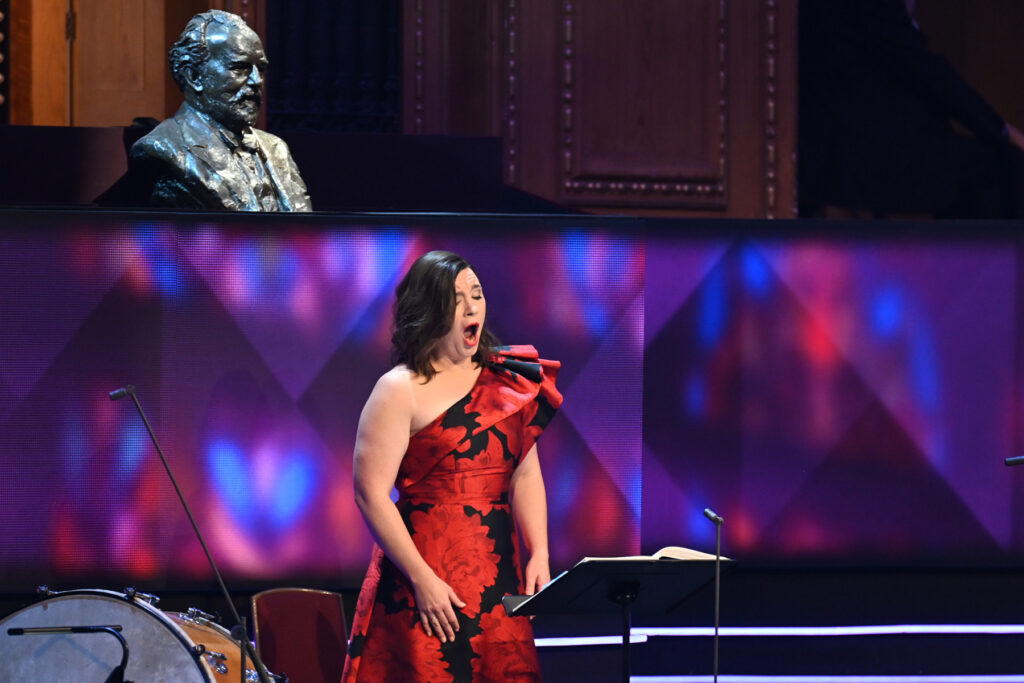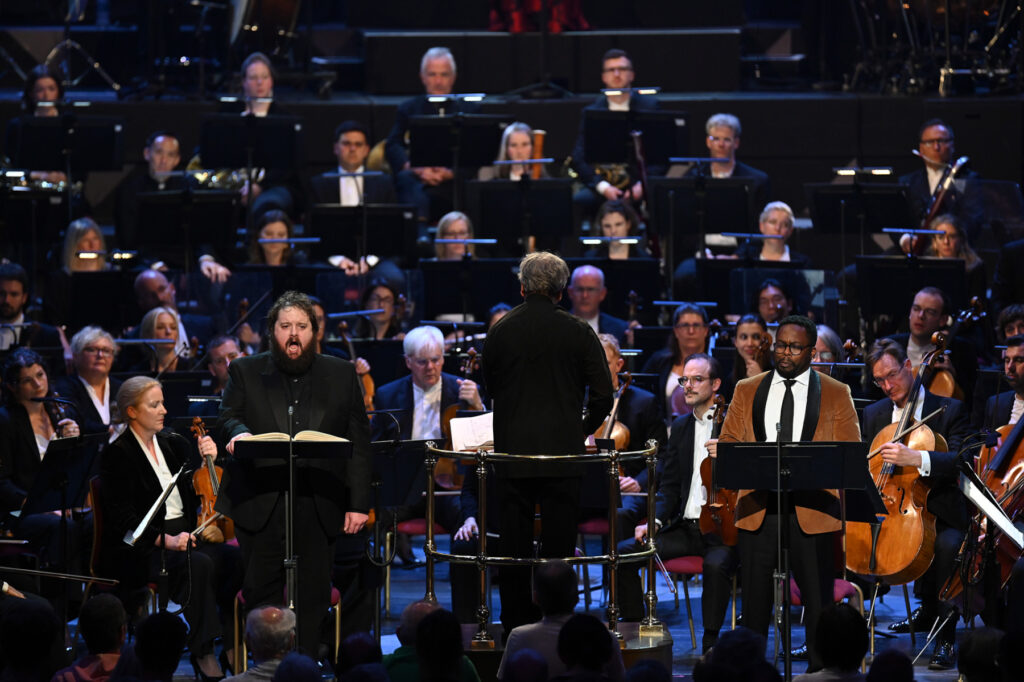Composers have long taken the horrors of the Second World War and used it as either a lament for its atrocities or an expression of reconciliation after them. Both Krzysztof Penderecki and Alfred Schnittke have turned to the two cities of Japan devasted by atomic weapons; in the case of Schnittke’s oratorio Nagasaki (1958), we have one of the largest of his choral works – a work that alludes to Bach, but which also just generates huge emotional power on its own terms.
For Benjamin Britten, however, his War Requiem, commissioned in 1958, and first performed on 30 May 1962, specifically commemorates one thing – the consecration of the new, resurrected Coventry Cathedral, mostly destroyed by German bombing during the Blitz on the city in November 1940 – even if the composer’s pacificism stretches way beyond the work itself. And here, I think, the War Requiem can slightly run into problems, as, in fact, do quite a lot of works which are set to the Latin Mass: exactly how far are these private or public statements by the composer?

As with Michael Tippett, Britten’s pacifism was life-long. The rise of Nazism, the Spanish Civil War of 1936, Belsen (which he visited with Yehudi Menuhin) formed those views, but the Cold War and anti-nuclear sentiments in Britain in the late 1950s made them more implacable so when he came to compose War Requiem he did so by writing a work with a very clear message. The setting of poems by Wilfred Owen, who had died in the trenches at Sambre-Oise Canal just a week before the Armistice, was clearly a deliberate choice. Owen’s poetic voice resonates with the worst horrors of the Great War – and as if Britten is reinforcing the idea that his War Requiem is beyond the realm of the ecclesiastical, he uses Owen’s “Anthem for Doomed Youth” for the first tenor solo where a funeral is on the battlefield. With Owen, too, the poetry often comes to question religion entirely – at odds with the setting of the Mass, perhaps – but it provides a profound shape to this work which can sometimes seem in conflict with itself. The Mass is public; the poetry private. And these are, I think, two sides to Britten’s own response to a subject in which he finds both inner and outer expression.
This particular performance benefited from several things which, once woven together, made for something tremendously powerful and emotionally deep. Antonio Pappano arguably took the Verdi route, forsaking one approach (the overtly religious – which Britten would likely have approved of) for the operatic (which he would likely have disapproved of). There was no question that Pappano knew where the dynamics would work – the opening ‘Requiem aeternum’, sung by the choir, was simply mesmerizingly done, so beautifully shallow as if emerging from the mist – but with crystal-sharp diction. Contrast this with the shattering climax to the ‘Libera me’ – the fulcrum that binds the work’s terror like nowhere else – and it was a moment of devastating impact; I have not heard it better done, nor with such profound horror. It was as if the “monstrous anger” and “wailing shells” had met in a terrible cataclysm. The ‘Dies irae’ had perhaps begun with the blistering sounds of warfare in a way that looked both backwards and to our own time.

Owen’s poems sung here by the tenor, Allan Clayton, and the baritone, Will Liverman, were generally nicely done, although it took time for both to find the right space for their voices to fully project. That Britten taxes the tenor in “Anthem for Doomed Youth” is undeniable; I’m not certain Clayton drove to the heart of its lamentation, even if his tone sometimes conveyed the religious rejection it drives at. Britten’s setting of “The Parable of the Old Man and the Young” (sung by both the tenor and baritone during the ‘Dies irae’) challenged the two soloists superbly – and none more than at its end, where the tone of both had chilling precision. “Strange Meeting” (again for both soloists) was oddly ravishing, yet only in the sense that both Clayton and Liverman brought alive the horror of the battlefield in a kind of haunting bleakness: “I am the enemy you killed, my friend/I knew you in this dark”.
Natalya Romaniw, the soprano, singing from behind the orchestra, was largely magnificent, the voice rich and expansive. Never overwhelmed by the chorus, she melded beautifully within them – notably in a stunning ‘Sanctus’ and ‘Libera me’. Acoustically, the performance worked superbly. The Tiffin Boys’ Choir singing from high up in the hall had the virtue of distance (not always a given in concert performances). The combined BBC and London Symphony Choruses were superlative – clarity majestic, the balance between the male and female sections near-ideal.
The LSO themselves were on blistering form, and notably fine was the chamber orchestra (set up to the right of the orchestra) where we got some exquisite playing. Gorgeous violin solos came from the orchestra’s leader (Benjamin Gilmore), with golden horn playing (Diego Incertis Sánchez) and a languorous Cor Anglais and oboe (Olivier Stankiewicz). The intimacy of the playing was never less than haunting, notably flexing inwards to the texts of Owen’s poetry, and a beautiful contrast to Pappano’s undeniably widescreen approach that had been to give us bugles and fanfares that rose explosively out of the orchestra.
I think if I had one doubt about the performance it had really to do with what Britten meant by War Requiem’s power of reconciliation. If performances are there to unify, in a world driven by division, and with a need to heal, this might have been a more international one. It wasn’t; but that doesn’t mean it wasn’t a great one.
Marc Bridle
War Requiem
Benjamin Britten
Natalya Romaniw – soprano; Allan Clayton – tenor; Will Liverman – baritone; Tiffin Boys’ Choir; BBC Symphony Chorus; London Symphony Chorus; London Symphony Orchestra; Sir Anthony Pappano – conductor
Royal Albert Hall, London, 17 August 2024
Top image: Sir Antonio Pappano.
All photos by Chris Christodoulou.